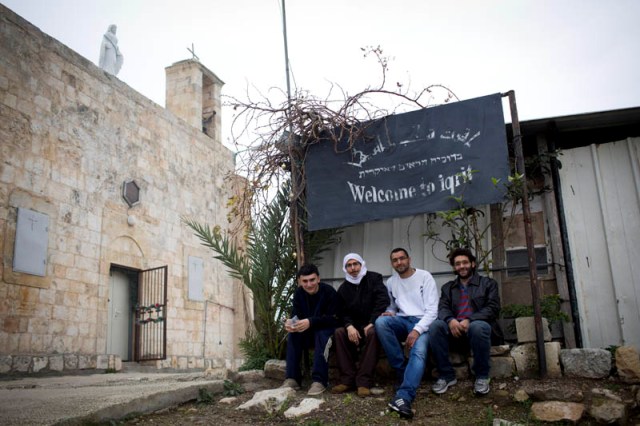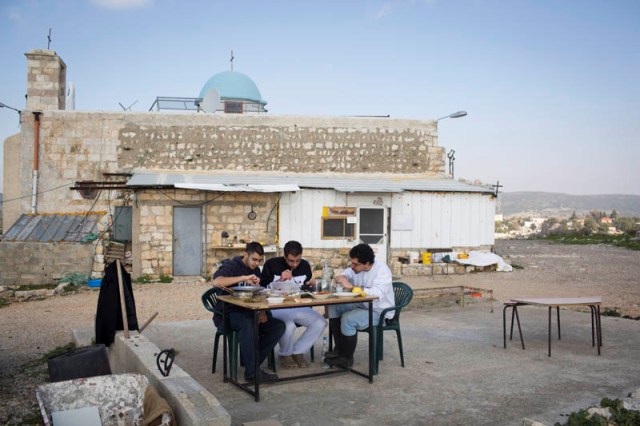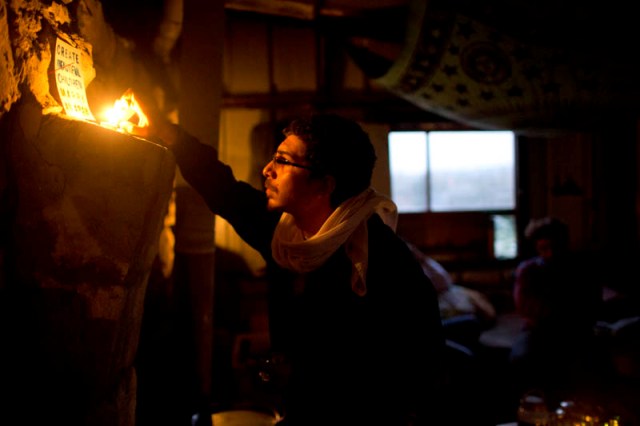The third generation of the displaced community of Iqrit decided that they’d had enough of waiting for authorities to allow them to return to their village lands, taking matters into their own hands. Last August, they set up their base in a room adjacent to the old church and haven’t left since.
In 1948, the Christian Orthodox village of Iqrit surrendered to the IDF without a fight. When soldiers ordered residents to leave for two weeks for security reasons, considering the village is extremely close to the Lebanese boarder, nobody thought twice about it. Three years later, in July 1951, when the High Court of Justice ordered the state to fulfill its promise and allow the displaced people, who were still living in temporary houses in other villages, to return to their homes and lands, the small community was thrilled. But on Christmas Eve of that year the IDF blew up the entire village, leaving only the church in place. The people of Iqrit realized that something had gone terribly, terribly wrong.
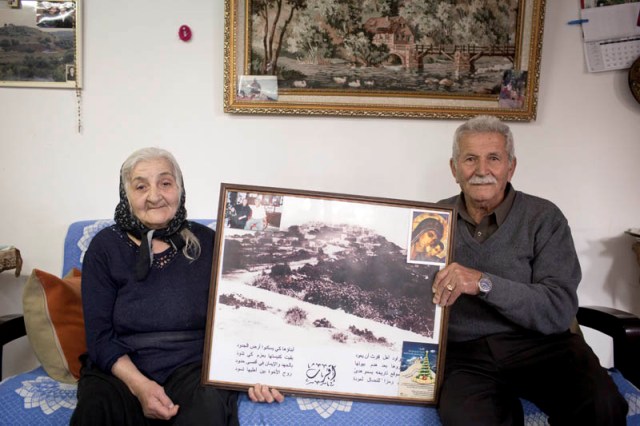
Since then, sixty-four years have passed. In the summer of 2012, like in all other summers since 1995, the entire displaced community organized a summer camp for their youth on village lands near the old church that they frequent on a monthly basis. They told the youngsters tales of village life and explained to them once again how they have been fighting for their right of return, a right which was guaranteed to them by courts and governments alike over the years. Iqrit is one of only two cases in Israeli history in which such promises have been made (the other being the nearby village of Bir’em).
The summer camp ended, and as everybody was returning home, some of the guides got to talking. They were sad to see how the generation of their grandparents was slowly fading away, and feared that whatever implementation of their recognized rights they had been unable to achieve in 64 years would not be achieved anytime soon. It was then and there that they decided to do something. They decided to return.
Six months have passed since that day. While three Palestinian outposts in the West Bank were erected and swiftly destroyed by the army – the youth of Iqrit were able to stay. Indeed, whenever they try to build something outside the church and its single adjacent room, authorities quickly show up to demolish it. But other than that, they’ve been living rough and making it happen: planting and growing their own food, collecting timber for fire, unearthing ruins of the old village, uploading pictures to their Facebook page from their mobile phones (there’s no electricity for computers), and making plans for the entire community’s future return.
Along with Activestills photographer Oren Ziv, I spent three days at this unique outpost/commune where young Palestinians are turning the dream of return into a reality. We interviewed them, as well as some of the older folk from the village who are fully supporting their young, and brought back with us their story. The piece I wrote was published in Haaretz a couple of weeks ago, but was not translated into English (the Hebrew origin can be found here). Last Friday, Channel 2’s “Ulpan Shishi,” the most watched news broadcast in Israel, ran a follow-up report to my Haaretz piece. It is quite unique that a mainstream platform seriously deals with the sensitive issue of the Palestinian Nakba, and the people of Iqrit hope that the massive (and mostly positive) attention they got will help them get back their lands – 64 years too late.
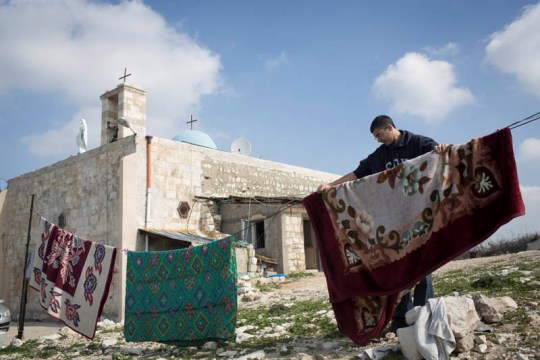
Read also:
Anti-Christian graffiti sprayed on church in destroyed Galilee village of Bir’em
Police brings down Palestinian outpost, activists resist peacefully
Palestinians erect third West Bank outpost, are attacked by IDF, settlers


